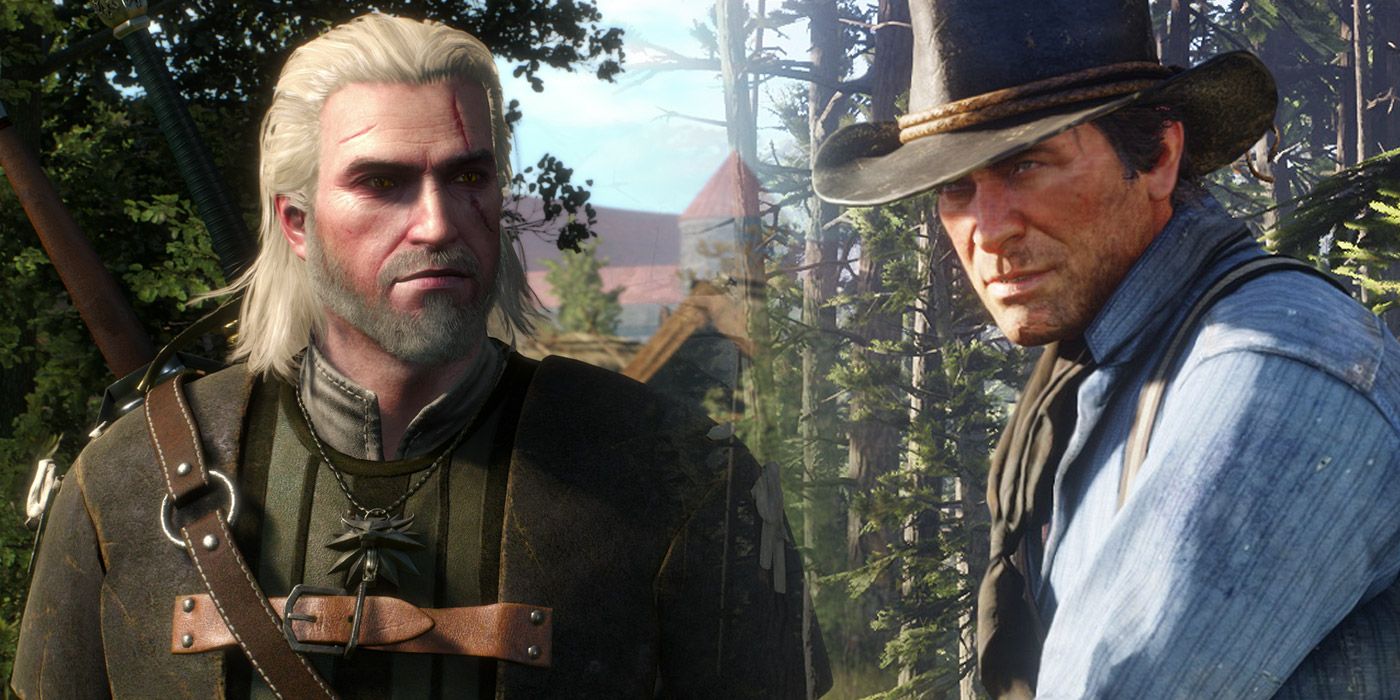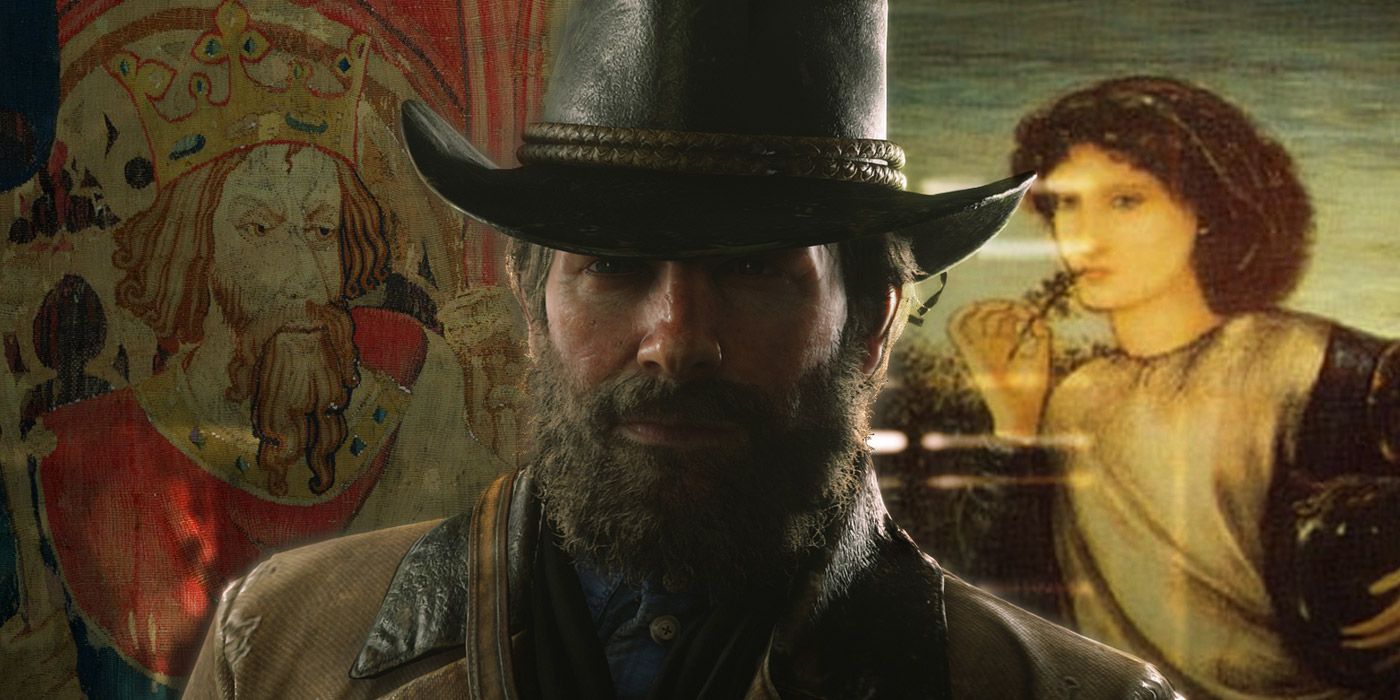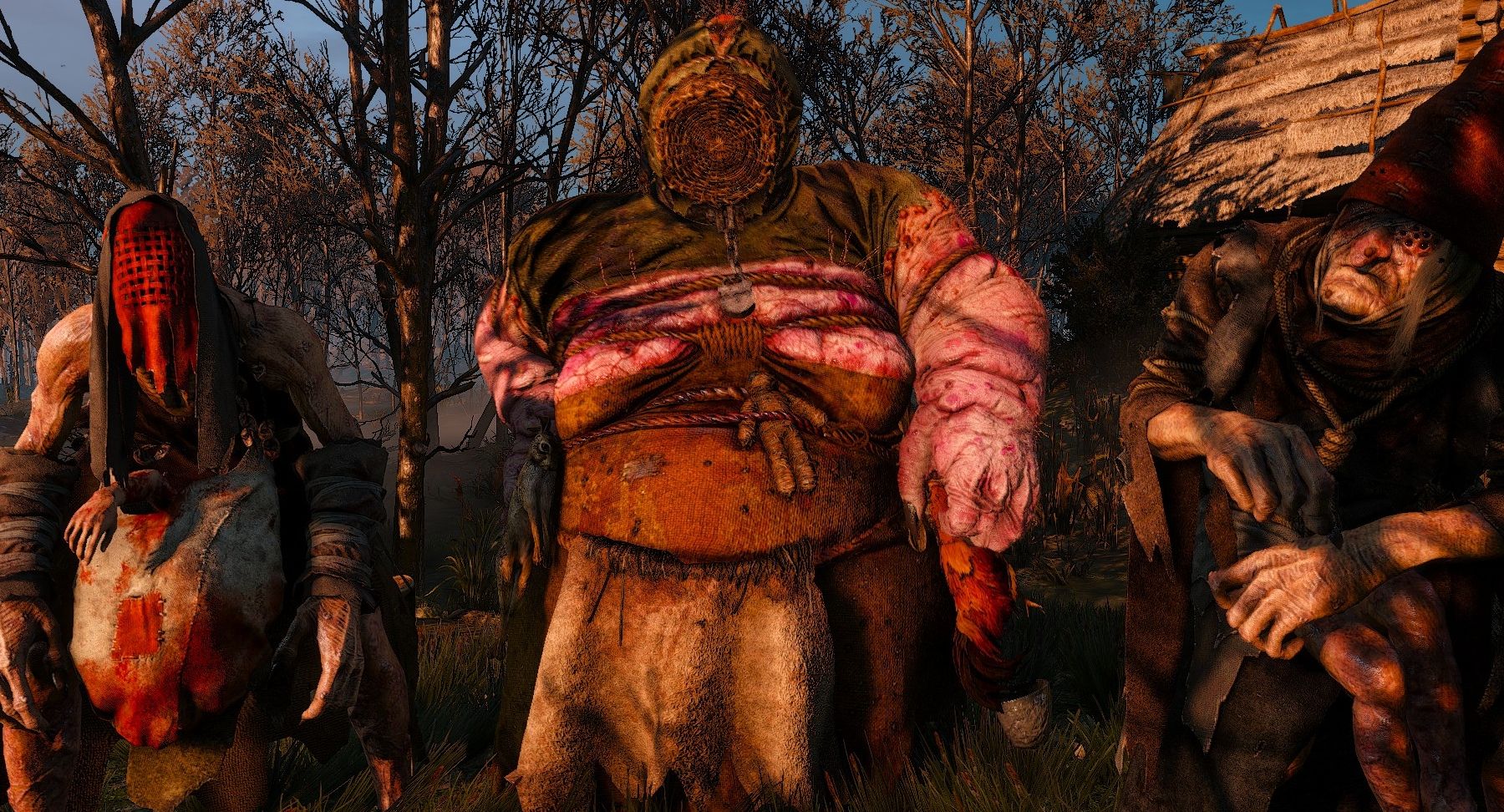Red Dead Redemption 2 is packed full of Arthurian legends which play play a key role both in-universe and as a commentary on the game itself. The characters refer to King Arthur and the Knights of the Round Table in the story, mythologizing themselves but also reminding the player that the entire game takes place within a mythologized version of the Old West.
Red Dead Redemption 2 isn’t the only huge open-world game with a strange relationship to another source. Though is may not seem like it on the surface, The Witcher 3: Wild Hunt’s relationship with Shakespeare is used in a similar way to Red Dead 2’s forays into Arthurian mythology.
Arthurian Myth in Red Dead 2
Red Dead Redemption 2 uses Arthurian myth on a bunch of different levels. For a start, characters talk about King Arthur and his Knights of the Round Table in-universe. Jack Marston reads about Arthurian myth as well, causing John Marston to give him the nickname Lancelot.
On a second level, there are similarities to Arthurian myth in the game’s story. Arthur Morgan’s name is a mash up of King Arthur and his sometimes-nemesis sorceress Morgan Le Fay. Like King Arthur, Arthur Morgan becomes aware of something which will cause his own death. For King Arthur, this is a prophecy which says that his son will return to kill him. For Arthur Morgan, it’s contracting a terminal illness.
In both cases, these are the results of the character’s evil acts. In Arthurian mythology King Arthur has a child through incest, Mordred, and then kills the other newborns in the land in an attempt to subvert the prophecy. Arthur Morgan contracts his disease while shaking down a poor family while carrying out a loan shark job.
The first quest after Arthur Morgan’s death is called “The Wheel.” This itself a reference to the wheel of fortune, a returning image in Sir Thomas Mallory’s Le Morte D’Arthur which is used to explain how fate can cause a man to do both good and evil in his life on the way to his greater destiny. This comes immediately after Arthur’s death in-game as a reflection on his life regardless of whether the player chose low or high honor in Red Dead 2. The references also acts as a poignant start to John Marston’s journey as the player character, which most players know the ending to from Red Dead 1.
The constant references to mythology also vitally hint at the way the Van Der Linde Gang mythologizes itself and relies on a mythological idea of the old west to justify its actions. This is particularly true of Dutch Van Der Linde, who is intensely nostalgic for the “freedom” of the Old West despite being born before the abolition of slavery itself. Ultimately, Arthurian legend works on multiple levels in Red Dead 2. It shows how the characters mythologize themselves to justify their lives, but also works to remind the player that even the world of Red Dead is a mythologization that still relies on a fictional idea of the Old West and its core dynamics that was propagated primarily in 20th century popular culture.
Shakespeare in The Witcher 3
The Shakespearean references in The Witcher 3 work in a similar way – they gently remind the player that the world they are in is a work of fiction. There are two major direct references to Macbeth in The Witcher 3. The first is the Crones and their journal entry, which reads:
“Sister crones, hand in hand, terrors of the sea and land, thus do go about, about: thrice to thine and thrice to mine, and thrice again, to make up nine. Macveth, Act 1, Scene 3”
Though a few words are changed, the line is almost identical to one in Act 1, Scene 3 of Macbeth. Later in the game during the quest “Reasons of State,” Dijkstra walks onto a stage and proclaims “if it were done when ‘tis done, t’were well it were done quickly,” which he identifies as a quote from “Vakmeth, Act 1, Scene 7.”
The references to Shakespeare in The Witcher 3 have uses on multiple levels, just like the King Arthur references in Red Dead 2. In one sense, they work in-universe. 1500 years before the events of the Witcher franchise, the series’ multiverse went through an event known as the Conjunction of the Spheres which caused different realities to collide, potentially explaining some of the most overt connections between the real world and the world of The Witcher.
On another level these moments work to momentarily undermine the immersion of the player. This might seem extremely counterintuitive in an RPG. However, just as Rockstar is invested in pointing out the mythologization of Red Dead 2's world, The Witcher 3 appears to be similarly invested in occasionally drawing player attention to its own fictionality. The Witcher 2 had some similar moments, such as Geralt jokingly referencing Lord of the Rings during the main quest.
The real mystery, however, is why CD Projekt Red wants to remind players of the game's fictionality. As a western, Red Dead Redemption 2 inherits a huge fictional legacy, one which comes from a genre which in many popular stories romanticized the brutality of the USA's westward expansion. Drawing attention to its own fictionality appears to be Red Dead 2’s way of reconciling itself with its own involvement in that genre’s history while still creating a compelling enough in-game story to make other points about the morality of characters like Dutch Van Der Linde and Arthur Morgan.
The fantasy genre certainly has problems in its own history, but it’s likely CD Projekt Red had another motive for drawing player attention to its own fictionality with its Shakespeare references. The possibilities range from simple comic relief during high-stakes moments in the story to creating links between the player’s reality and The Witcher’s to potentially make the game even more immersive. While it’s hard to pin down, finding the places where the developer asks the player to momentarily think outside of the game’s world can be some of the most interesting moments in gaming, raising larger questions which many people once considered the exclusive territory of older artforms like books and film.
Red Dead Redemption 2 is available now on PC, PS4, Stadia, and Xbox One.



